The Geographic Tapestry Of Wisconsin: A County-by-County Exploration
The Geographic Tapestry of Wisconsin: A County-by-County Exploration
Related Articles: The Geographic Tapestry of Wisconsin: A County-by-County Exploration
Introduction
With great pleasure, we will explore the intriguing topic related to The Geographic Tapestry of Wisconsin: A County-by-County Exploration. Let’s weave interesting information and offer fresh perspectives to the readers.
Table of Content
The Geographic Tapestry of Wisconsin: A County-by-County Exploration
Wisconsin, the "Badger State," is a tapestry of diverse landscapes, vibrant communities, and a rich history. Its geographic tapestry is intricately woven by 72 counties, each possessing unique characteristics that contribute to the state’s overall identity. Understanding the county lines on a map of Wisconsin is crucial for appreciating the state’s diverse demographics, economic activities, and cultural heritage.
A Visual Journey Through Wisconsin’s Counties
A map of Wisconsin with county lines acts as a visual guide, revealing the state’s geographic organization and highlighting its diverse regions. The counties, like individual threads in the tapestry, each offer a unique story to tell.
The Northern Frontier: Where Wilderness Meets Civilization
Northern Wisconsin, dominated by counties like Vilas, Oneida, and Iron, is a realm of rugged beauty. Its vast forests, pristine lakes, and rolling hills attract outdoor enthusiasts and nature lovers. This region is home to numerous state parks and forests, offering opportunities for hiking, fishing, camping, and wildlife viewing. The counties here contribute significantly to the state’s tourism industry, attracting visitors from across the country.
The Dairyland Heart: Where Tradition Meets Innovation
Central Wisconsin, encompassing counties like Marathon, Waupaca, and Portage, is the heart of Wisconsin’s dairy industry. Known as "America’s Dairyland," this region is characterized by rolling farmlands, lush pastures, and small towns steeped in agricultural traditions. The dairy industry plays a pivotal role in the local economy, providing employment and shaping the cultural landscape.
The Gateway to the Midwest: Where Industry Meets Innovation
Southeastern Wisconsin, including counties like Milwaukee, Waukesha, and Ozaukee, is the state’s economic powerhouse. Home to major metropolitan areas like Milwaukee, this region is a hub for manufacturing, finance, and technology. The region’s diverse industries, bustling cities, and thriving arts and culture scene attract a diverse population.
The Land of Opportunity: Where Agriculture Meets Tourism
Southwest Wisconsin, encompassing counties like Crawford, Vernon, and Richland, is a blend of rural charm and agricultural abundance. The region’s rolling hills, fertile valleys, and scenic rivers make it a popular destination for outdoor recreation. The counties here are also significant producers of crops like corn, soybeans, and dairy products, contributing to the state’s agricultural economy.
Beyond the Boundaries: Understanding the Importance of County Lines
The county lines on a map of Wisconsin serve as more than just geographic boundaries. They represent a framework for understanding:
- Local Government and Administration: Each county has its own elected officials, government structure, and administrative functions. This decentralized system allows for local decision-making and addresses specific needs of individual communities.
- Economic Development and Infrastructure: Counties play a crucial role in promoting economic growth, supporting local businesses, and developing infrastructure, such as roads, bridges, and utilities.
- Education and Healthcare: County governments are responsible for providing essential services like education and healthcare, ensuring access to these vital resources for residents.
- Cultural Heritage and Identity: Each county has its own unique history, traditions, and cultural expressions. The county lines help preserve and celebrate the diverse heritage that makes Wisconsin unique.
FAQs: Unveiling the Significance of Wisconsin’s Counties
Q: Why are county lines important in Wisconsin?
A: County lines define local government structures, promote economic development, facilitate the delivery of essential services, and preserve cultural heritage.
Q: How do county lines influence life in Wisconsin?
A: County lines shape local governance, economic opportunities, access to education and healthcare, and cultural expressions.
Q: What are some key differences between counties in Wisconsin?
A: Counties vary in population density, economic activities, cultural heritage, and natural landscapes.
Q: How can I learn more about specific counties in Wisconsin?
A: County websites, historical societies, and local newspapers provide valuable information about individual counties.
Tips for Navigating Wisconsin’s County Map
- Start with a general overview: Familiarize yourself with the state’s geographic regions and the major cities within each county.
- Focus on specific areas of interest: If you have a particular interest, like outdoor recreation, agriculture, or history, explore counties known for those activities.
- Use online resources: Interactive maps and databases provide detailed information about individual counties, including demographics, economic data, and cultural attractions.
- Engage with local communities: Visiting county fairs, museums, and historical sites offers valuable insights into the unique character of each county.
Conclusion: A Tapestry of Diversity and Unity
The map of Wisconsin with county lines is a powerful tool for understanding the state’s diverse geography, its vibrant communities, and its rich heritage. Each county, with its unique characteristics, contributes to the overall tapestry of Wisconsin. By exploring the state’s county lines, we gain a deeper appreciation for its diverse landscape, its economic vitality, and its enduring cultural legacy.
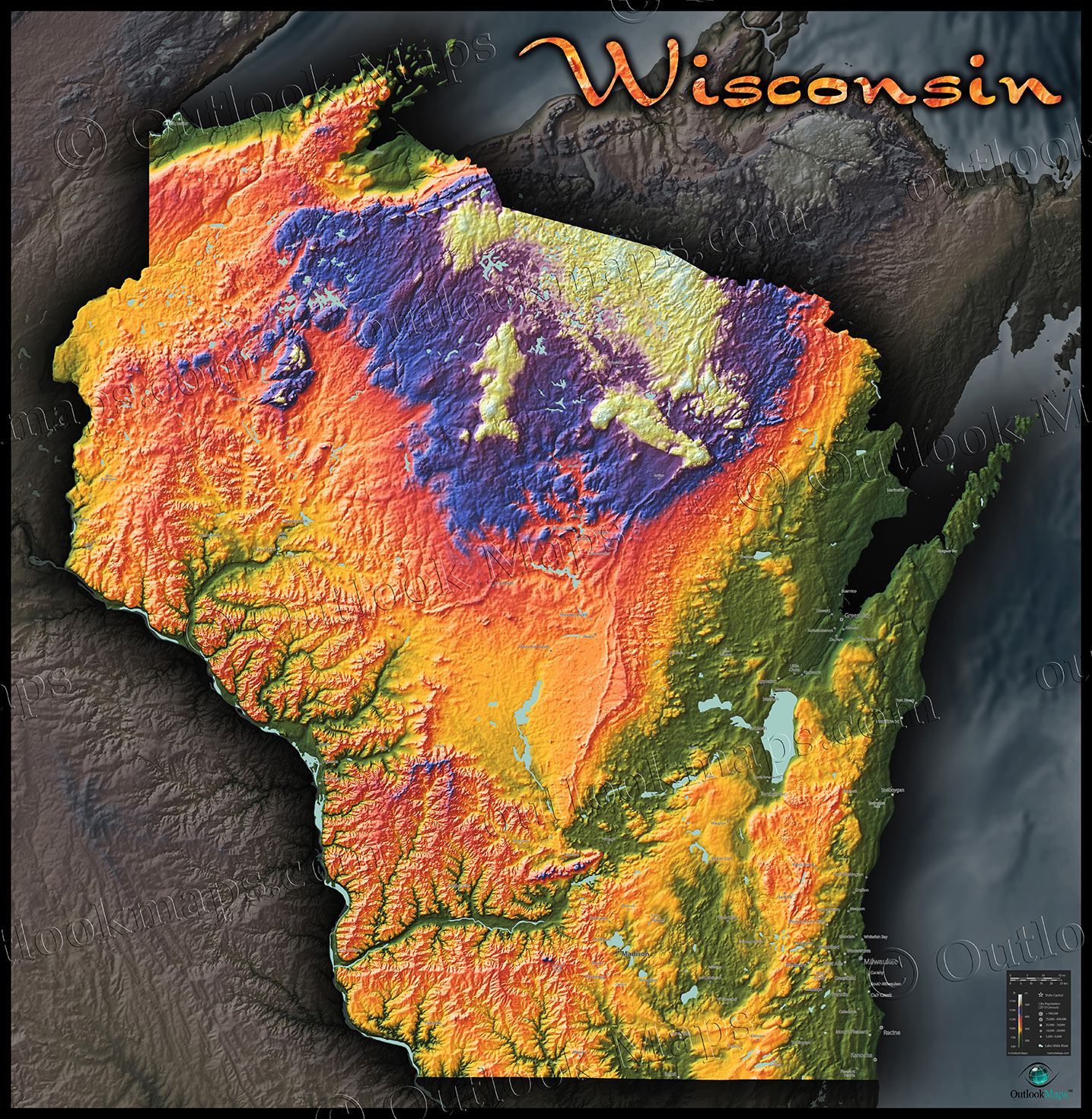
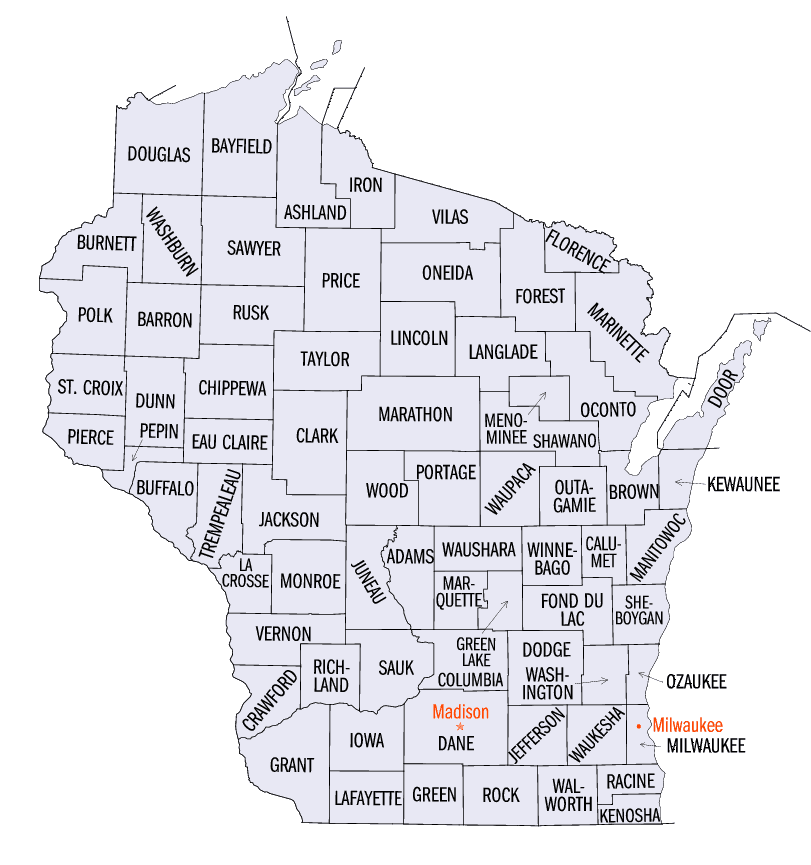

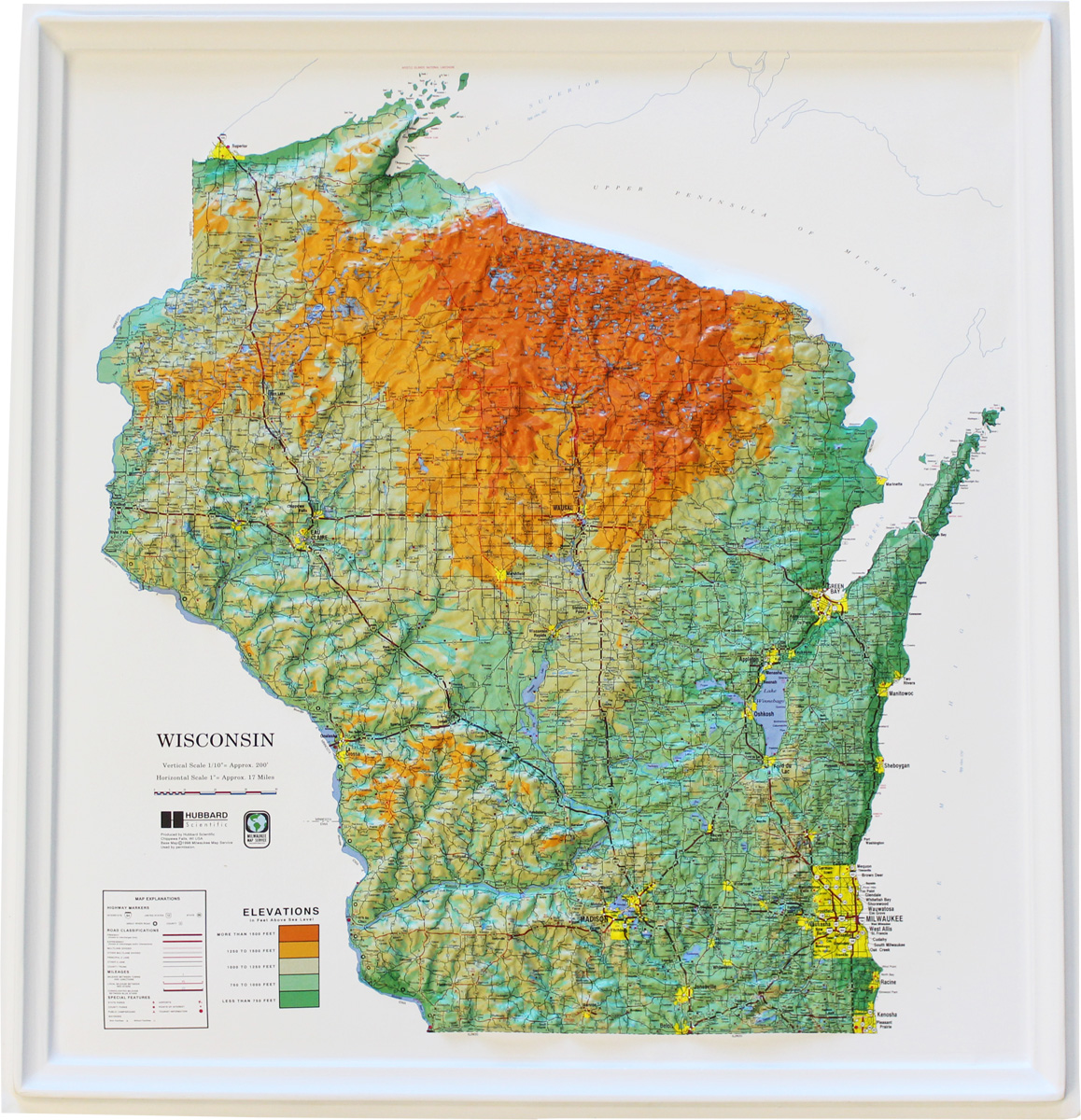
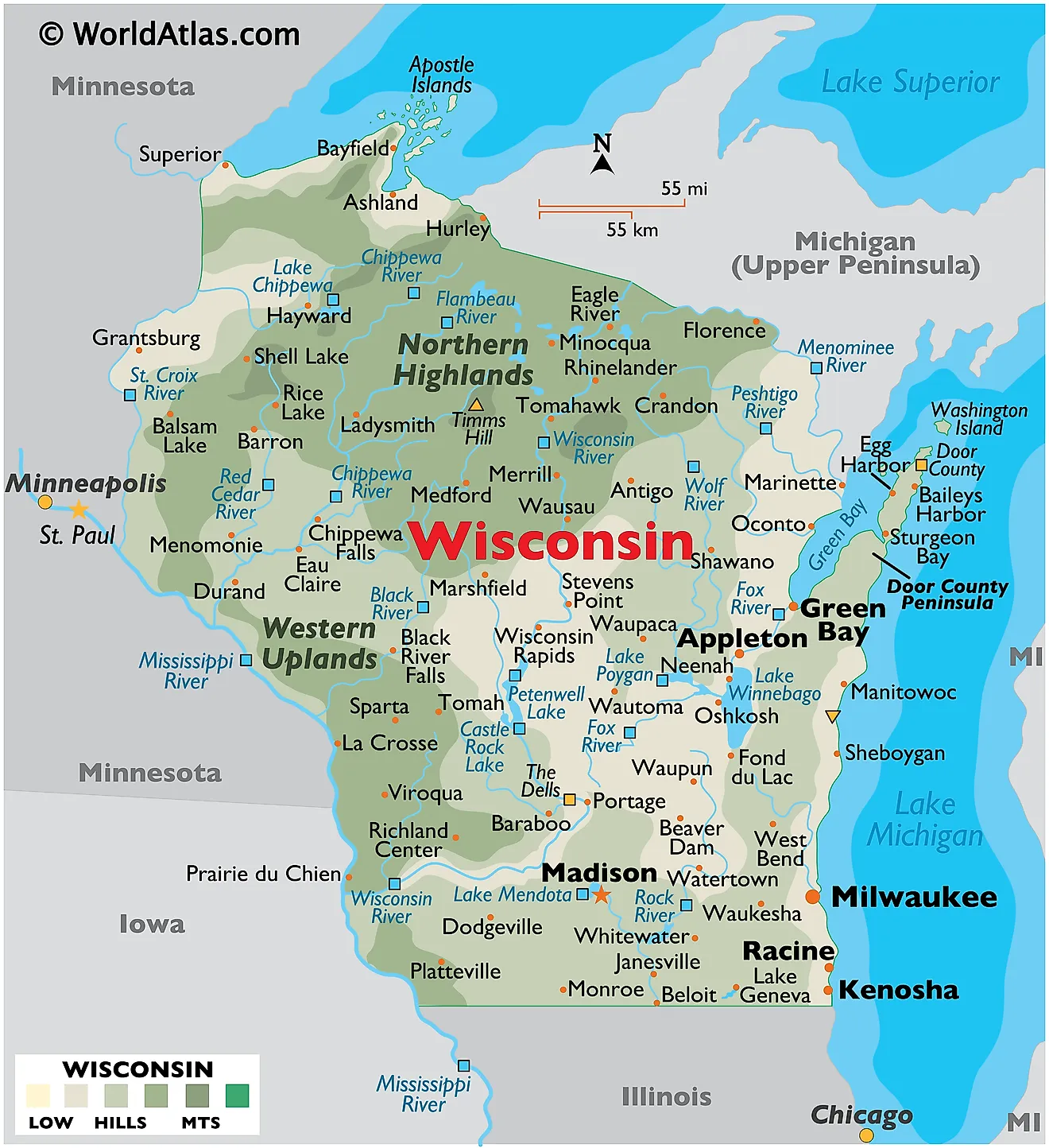
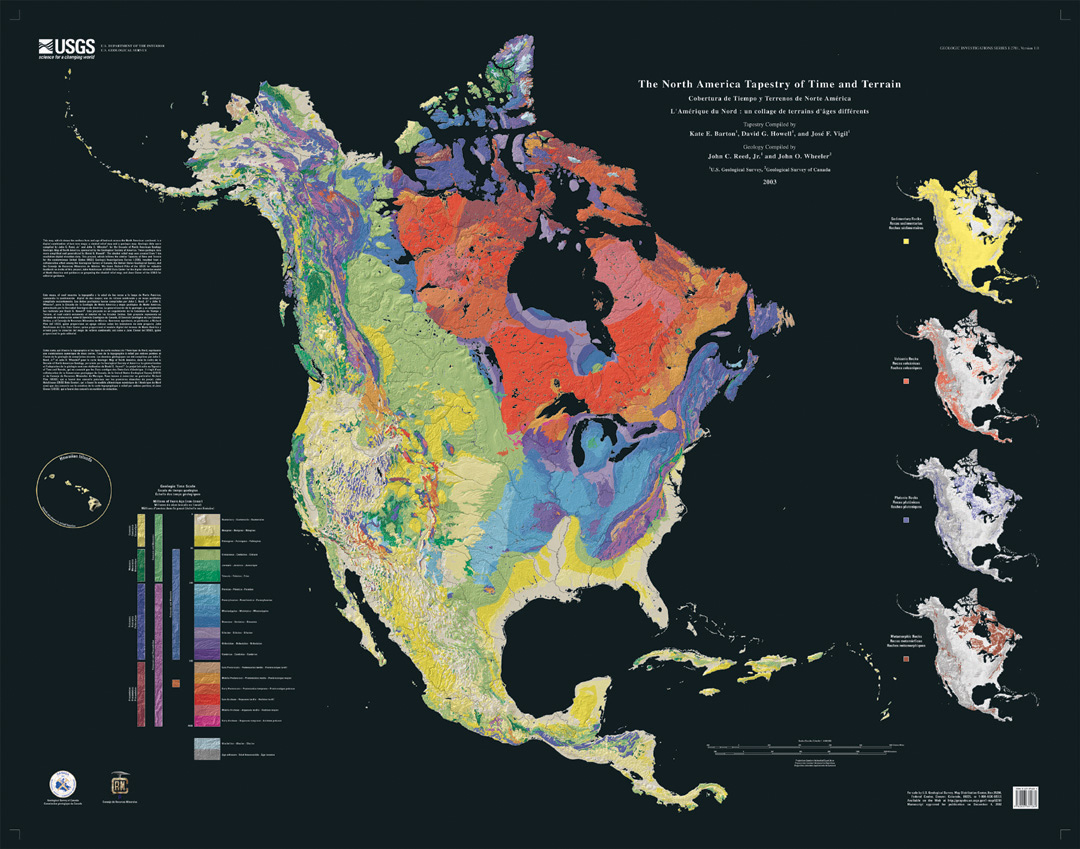
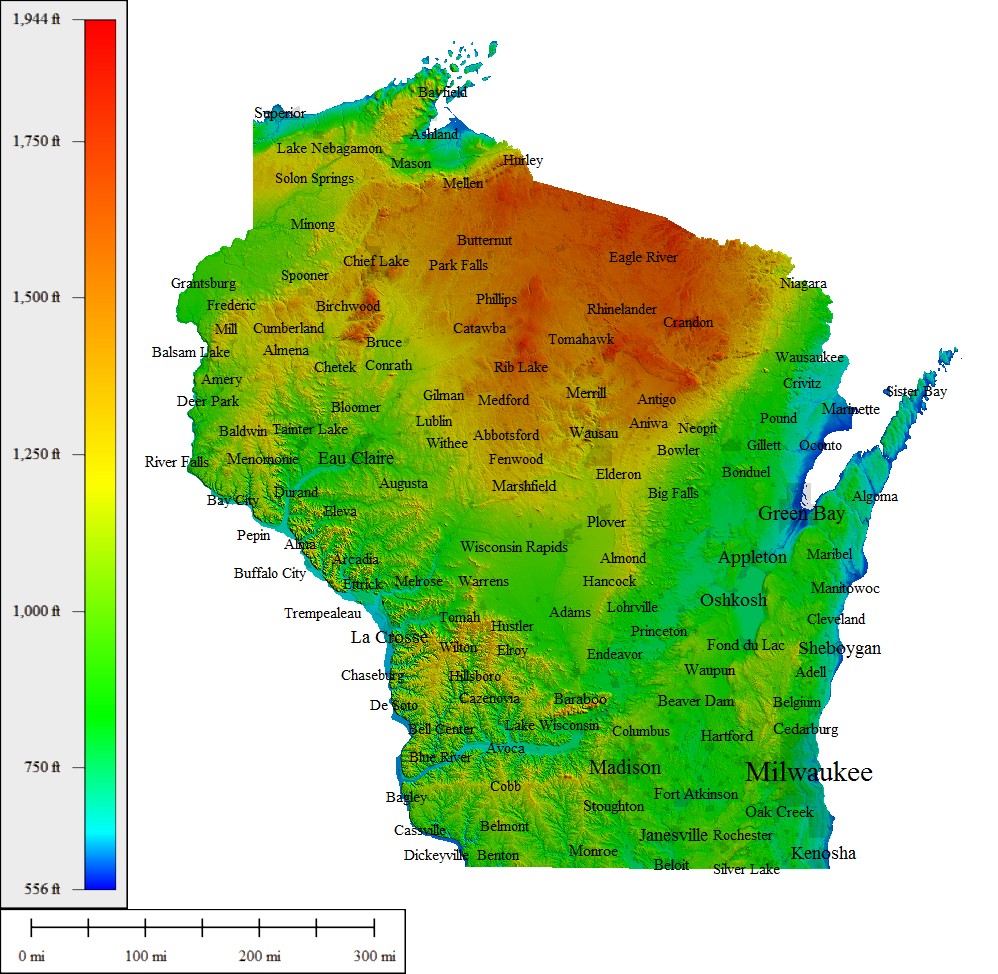
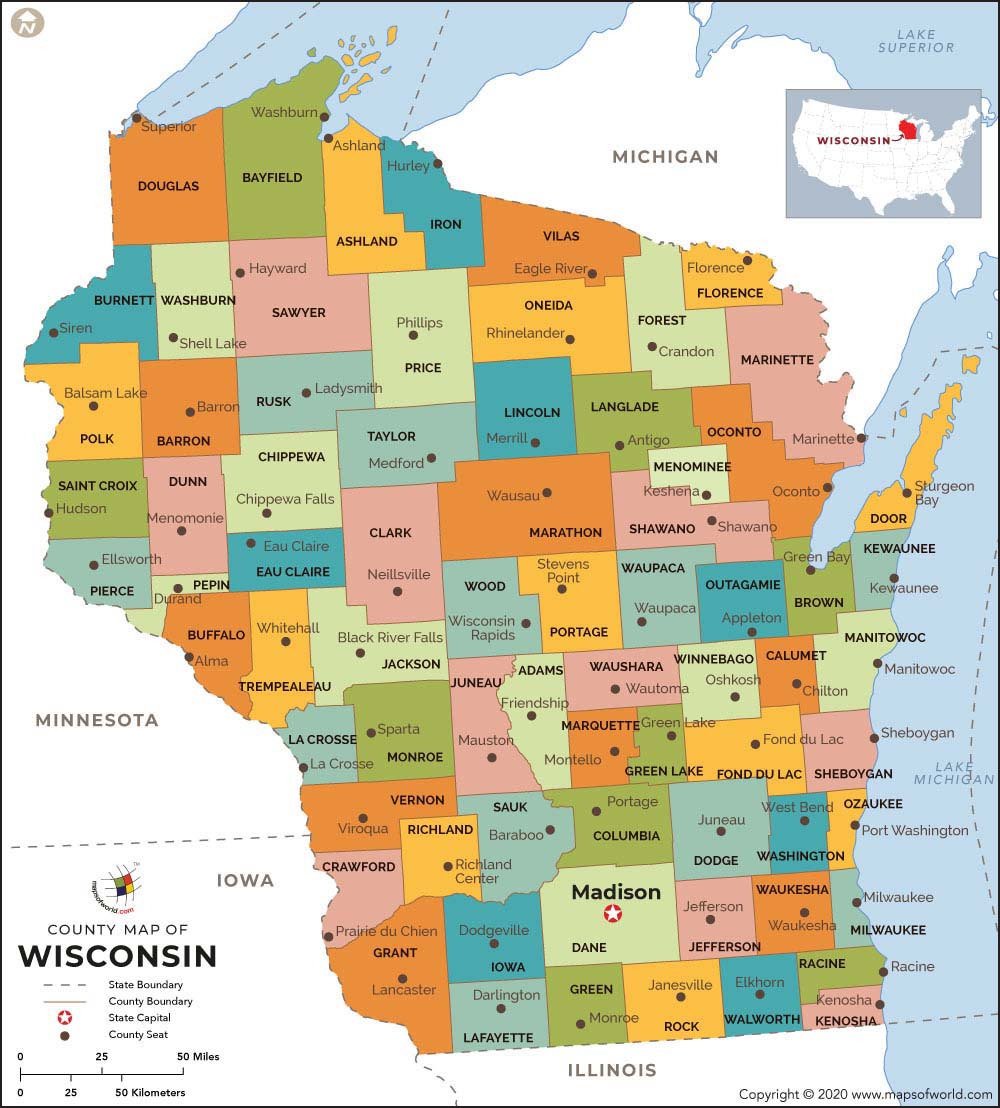
Closure
Thus, we hope this article has provided valuable insights into The Geographic Tapestry of Wisconsin: A County-by-County Exploration. We hope you find this article informative and beneficial. See you in our next article!